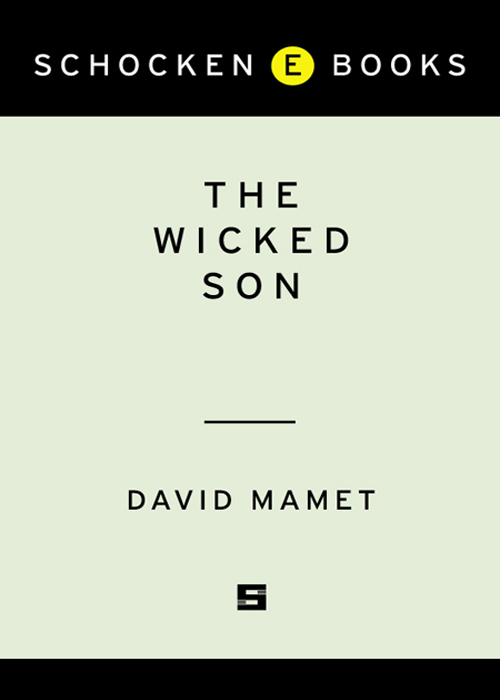
The Wicked Son
Anti-Semitism, Self-hatred, and the Jews
کتاب های مرتبط
- اطلاعات
- نقد و بررسی
- دیدگاه کاربران
نقد و بررسی

August 21, 2006
The world hates the Jews. The world always has and will continue to do so." So says celebrated playwright and novelist Mamet in this new entry in the Jewish Encounters series, as he sets his sights on both anti-Semites and apostate Jews, whom he refers to as "the Wicked Sons." Mamet marshals his passion and mastery of language to argue that only religious observance is an authentic, non-self-hating expression of Judaism. Organizing that argument coherently, however, doesn't seem to be a priority, as he moves from discussions of the State of Israel to excoriations of assimilated Jews and contemporary culture and back with no apparent order. The tone is that of the condescending expert: alternately Talmudic scholar, academic, psychoanalyst and anthropologist. But nowhere is Mamet's expertise proven; he provides no source materials to back up his pronouncements on everything from Santa Claus to gun control to religious observance. The implication of this bombastic text seems to be that anyone who disagrees is a coward, an anti-Semite or a self-hating Jew.

August 1, 2006
Mamet, the Pulitzer Prize-winning playwright and filmmaker, has written a rather confusing but very provocative analysis of what is often called the "longest hatred" and its effects on Jews. Those unfamiliar with the often-oblique dialogue that characterizes Mamet's fiction will probably find wading through his language frustrating. His repeated allusions to the Bible and other literary sources are strained, and he paints with too broad a brush ("the world hates Jews"). If one can cut through the fog and tolerate his generalizations, it is evident that Mamet is on to something, particularly in his views on the apparent increase in Jewish disdain for and rejection of their own culture. He ties Jewish self-hatred to anti-Semitism, asserting that the victims eventually wonder if they somehow "deserve" the opprobrium heaped on them. So called "emancipated" Jews may try to cleanse themselves of racial taint by disparaging "Jewish" traits. Of course, Mamet finds the worst manifestations of this self-hatred in those Jews who seem to delight in attacking the very existence of Israel. In Mamet's view, they absurdly condemn Jewish passivity during the Holocaust and condemn Jewish aggressiveness in defending the State of Israel. This isn't an easy book to read, and it will likely outrage many Jews and non-Jews, but Mamet's blunt, passionate assertions have to be seriously considered.(Reprinted with permission of Booklist, copyright 2006, American Library Association.)

























دیدگاه کاربران